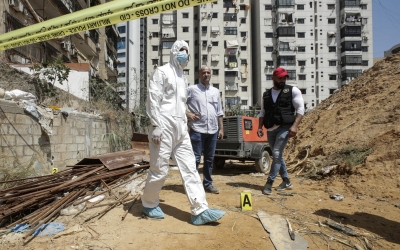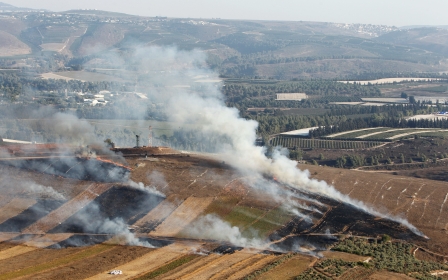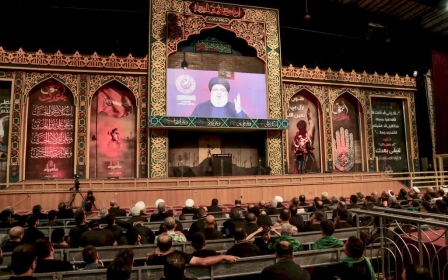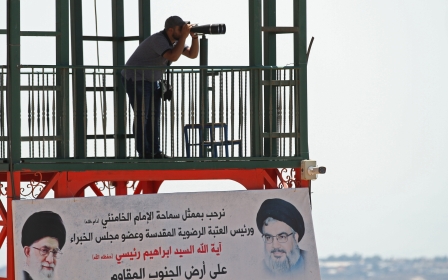Nasrallah: Hezbollah's cross-border attack sets up 'new phase' in Israel conflict
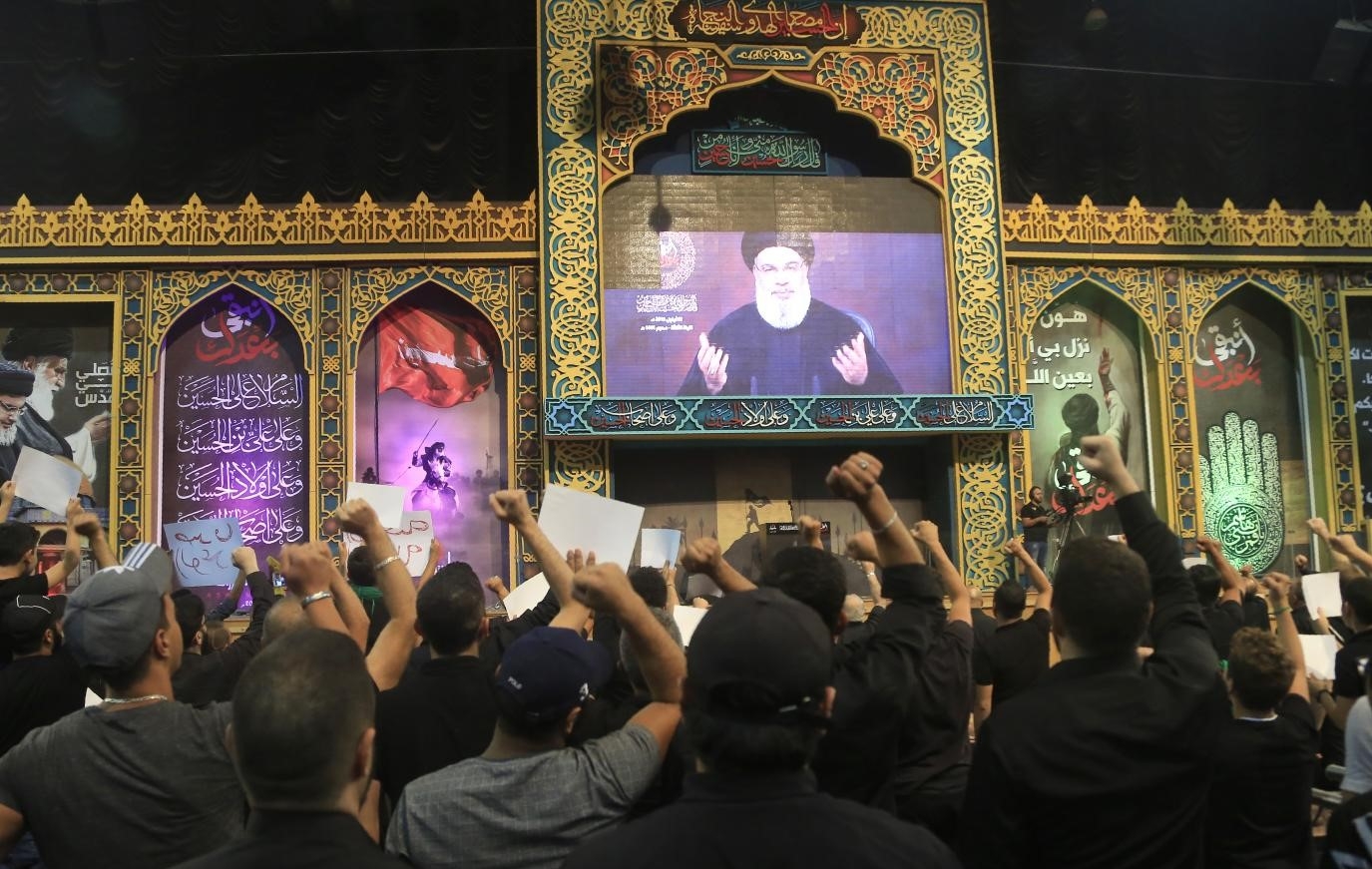
Hezbollah is ushering in a "new phase" in the conflict with Israel, the group's leader Hassan Nasrallah has said, after it launched a cross-border attack on an Israeli military vehicle over the weekend.
Addressing supporters on the first day of the Shia religious mourning period of Ashura, Nasrallah said on Monday that his group will continue to respond to Israeli violations of Lebanon's sovereignty.
"For those in the international community who are concerned about stability in the region, I tell them to talk to the Israelis and tell them that turning a blind eye is over [for Hezbollah], and Lebanon will no longer accept violations against its sovereignty," he said.
Nasrallah's comments come a day after Hezbollah fired anti-tank rockets on a military vehicle inside Israel in retaliation for an Israeli drone attack in Beirut a week earlier.
New MEE newsletter: Jerusalem Dispatch
Sign up to get the latest insights and analysis on Israel-Palestine, alongside Turkey Unpacked and other MEE newsletters
Israel responded on Sunday by firing dozens of rockets into south Lebanon.
Nasrallah said that in the past Hezbollah has retaliated against "Israeli aggressions" by hitting targets in the Israeli-occupied Shebaa Farms area, but Sunday's attack took place within Israel's internationally recognised borders.
Lebanon claims Shebaa Farms as its own, but Israel says the territory is part of the Syrian Golan Heights, which it occupies.
"For decades, the Israelis could not stand that someone would touch their border… What happened yesterday is that the most important Israeli red line for decades has been broken by the Islamic resistance," said Nasrallah, referring to Hezbollah.
"It's no longer a red line. It's finished," he said.
In a video statement shared on Twitter on Monday, Israeli Prime Minister Benjamin Netanyahu held out the prospect of future military action to prevent Hezbollah from getting missiles that could be fired with increased accuracy at targets in Israel.
"We will continue to do whatever is necessary to defend Israel at sea, on land and in the air. We will continue to act against the threat of the precision-guided rockets," he said, as reported by Reuters.
Series of attacks
Tensions have escalated between Israel and Lebanon as a result of a series of Israeli incursions into Lebanese territory over the past week.
Israel said the attack on Sunday did not cause any casualties, but Hezbollah claimed that all the soldiers in the targeted vehicle were killed or injured.
The flare-up on the Israeli-Lebanese border follows a series of suspected Israeli attacks against Iran-linked targets in Iraq, Syria and Lebanon.
'It is our right and Lebanon's right to defend our land, and we will confront Israeli drones in Lebanon's sky'
- Hassan Nasrallah, Hezbollah chief
Last week, Iraq said it intended to file a complaint with the United Nations after finding Israel was "certainly" behind several recent attacks on bases used by government-aligned paramilitary groups.
Meanwhile, an Israeli air strike on the outskirts of Damascus killed two Hezbollah fighters on 25 August. A day later, two Israeli drones crashed in south Beirut.
On Monday, Nasrallah said the unmanned planes were on a mission that they failed to achieve, but he didn't elaborate on that mission's objectives.
The Hezbollah chief also warned Israel that its drones are not safe in Lebanese skies.
"It is our right and Lebanon's right to defend our land, and we will confront Israeli drones in Lebanon's sky," he said.
Nasrallah also blamed Netanyahu for sparking the recent escalation ahead of the upcoming Israeli elections on 17 September.
"The Israelis must know that what happened is a result of Netanyahu's stupidity - who cannot see anything but how to save himself from the judgement against his corruption cases," Nasrallah said.
Netanyahu, who failed to form a ruling coalition government after a vote in April, has been investigated in relation to several corruption cases.
Middle East Eye delivers independent and unrivalled coverage and analysis of the Middle East, North Africa and beyond. To learn more about republishing this content and the associated fees, please fill out this form. More about MEE can be found here.


